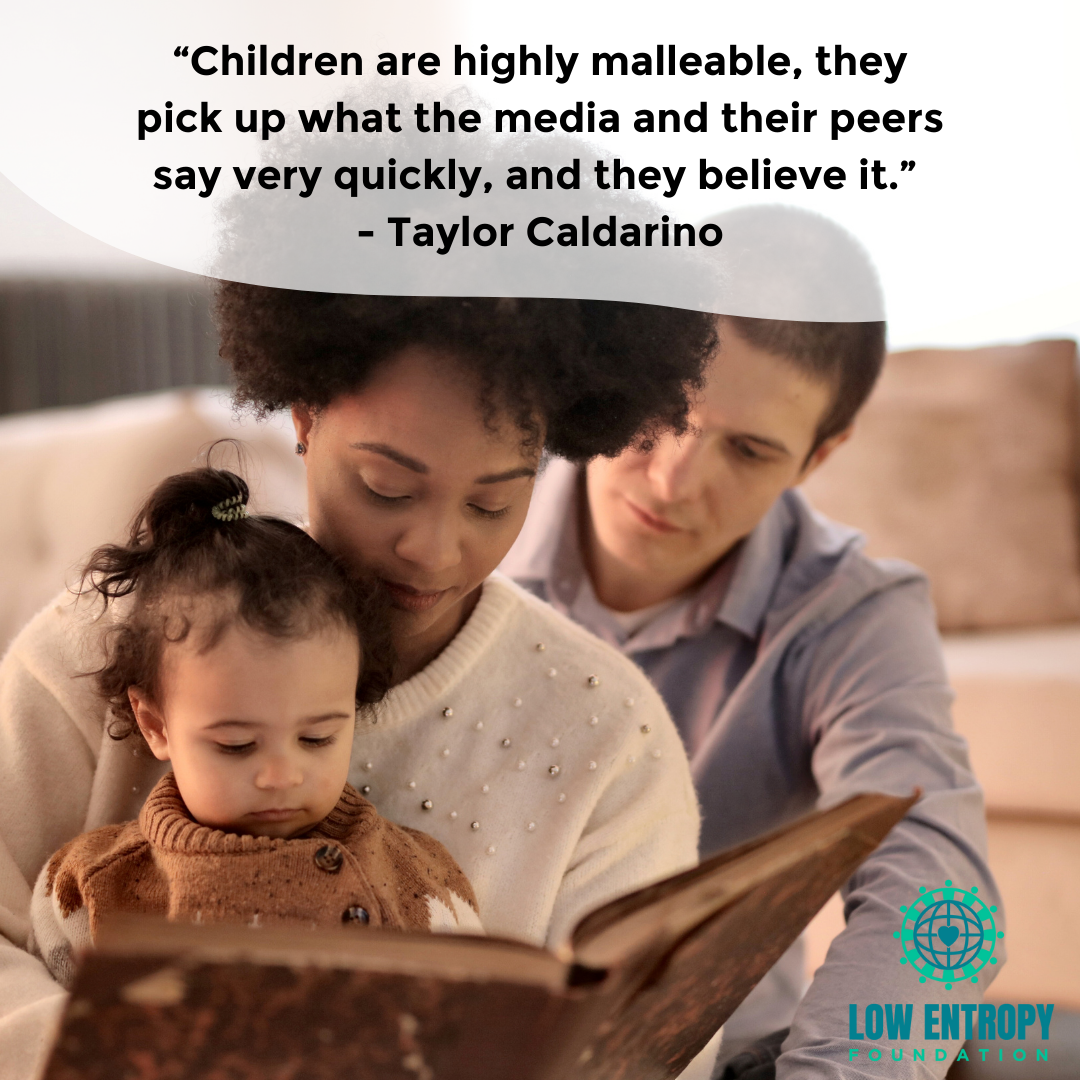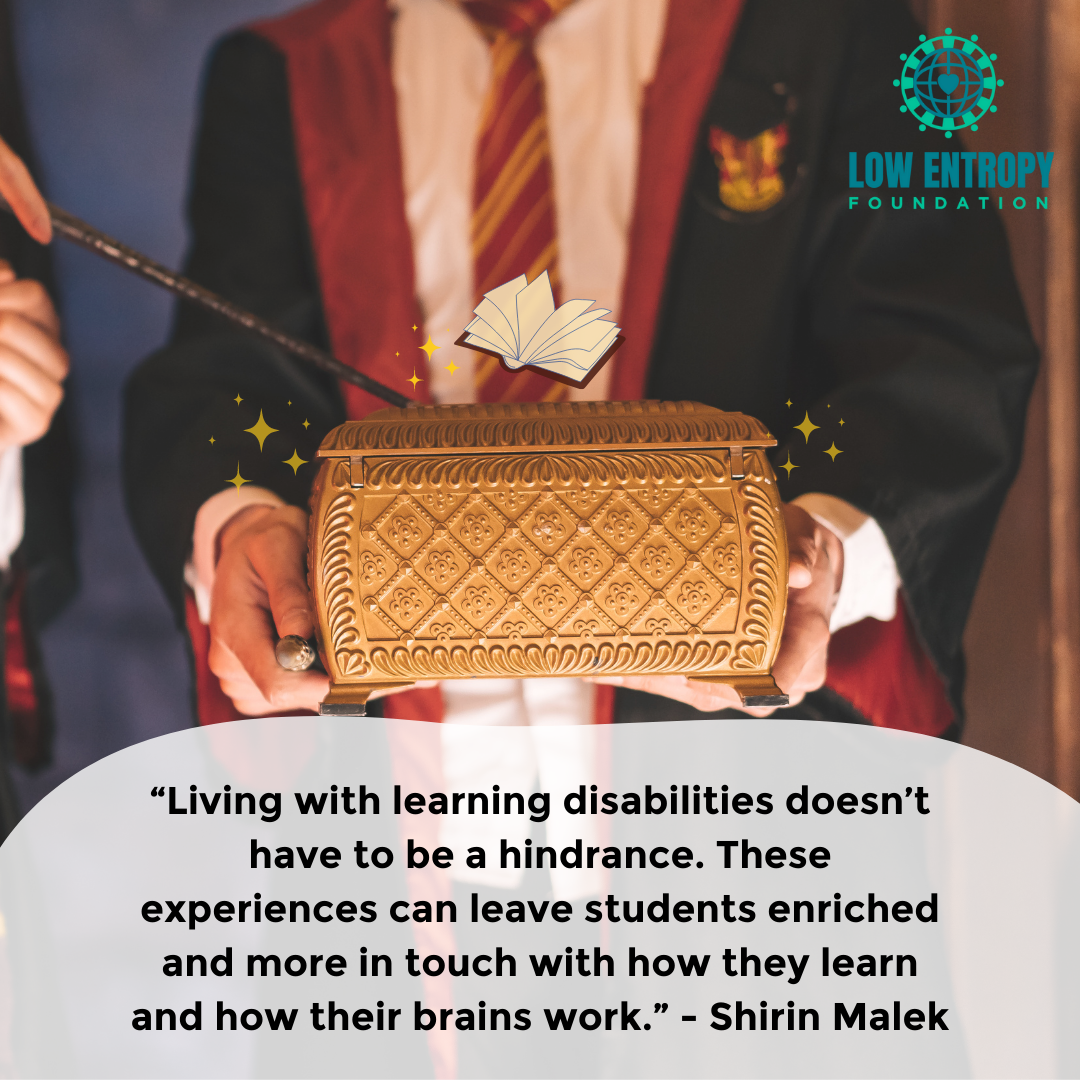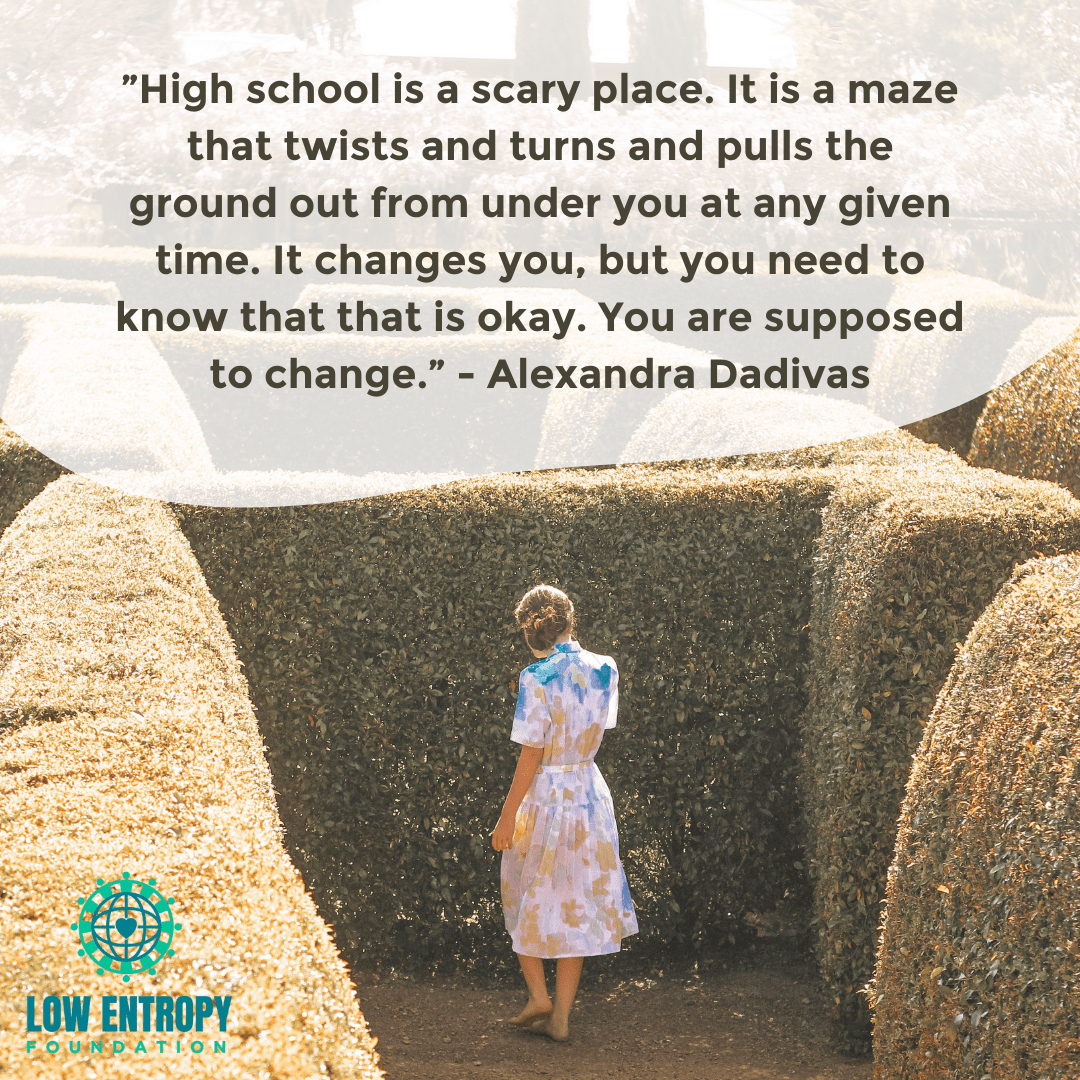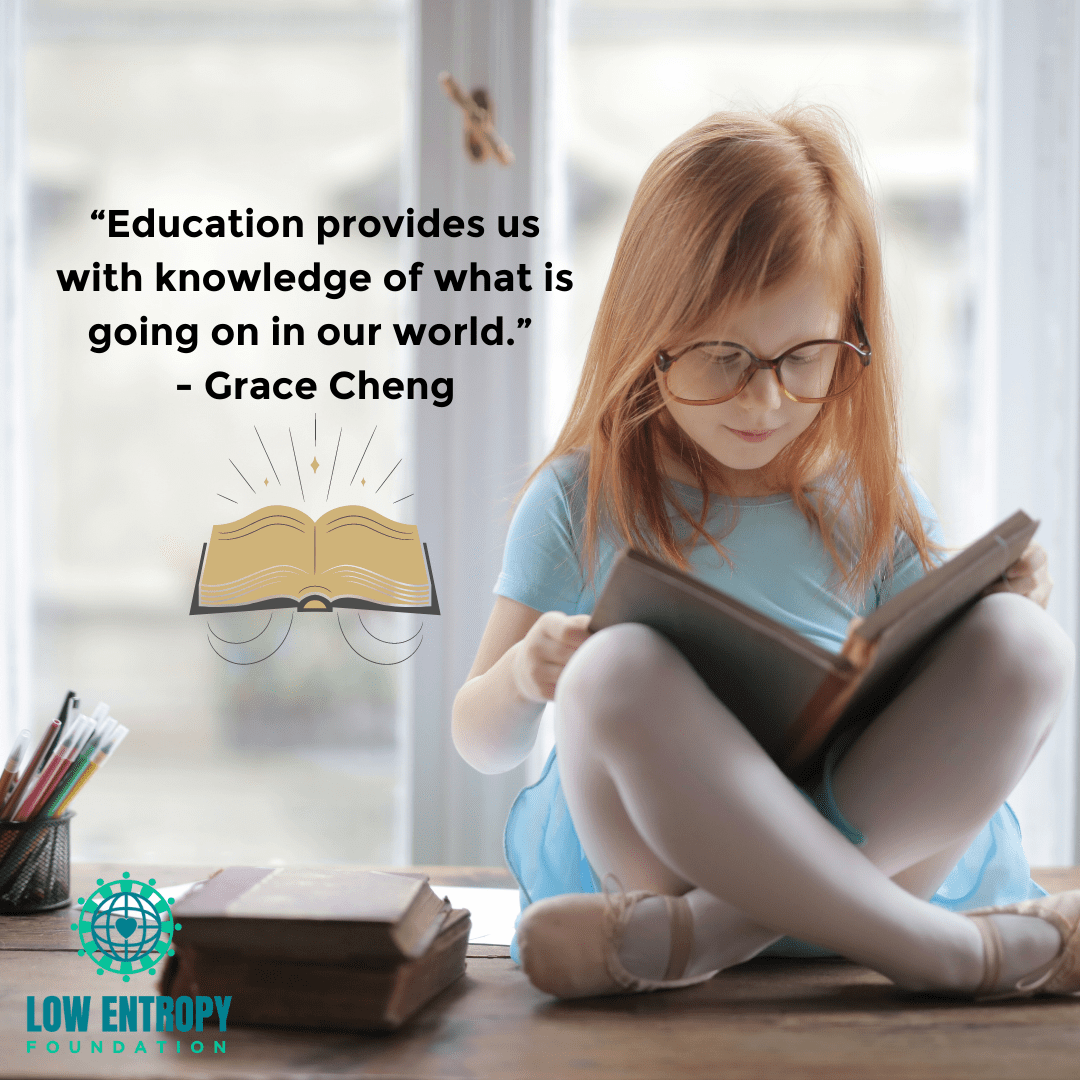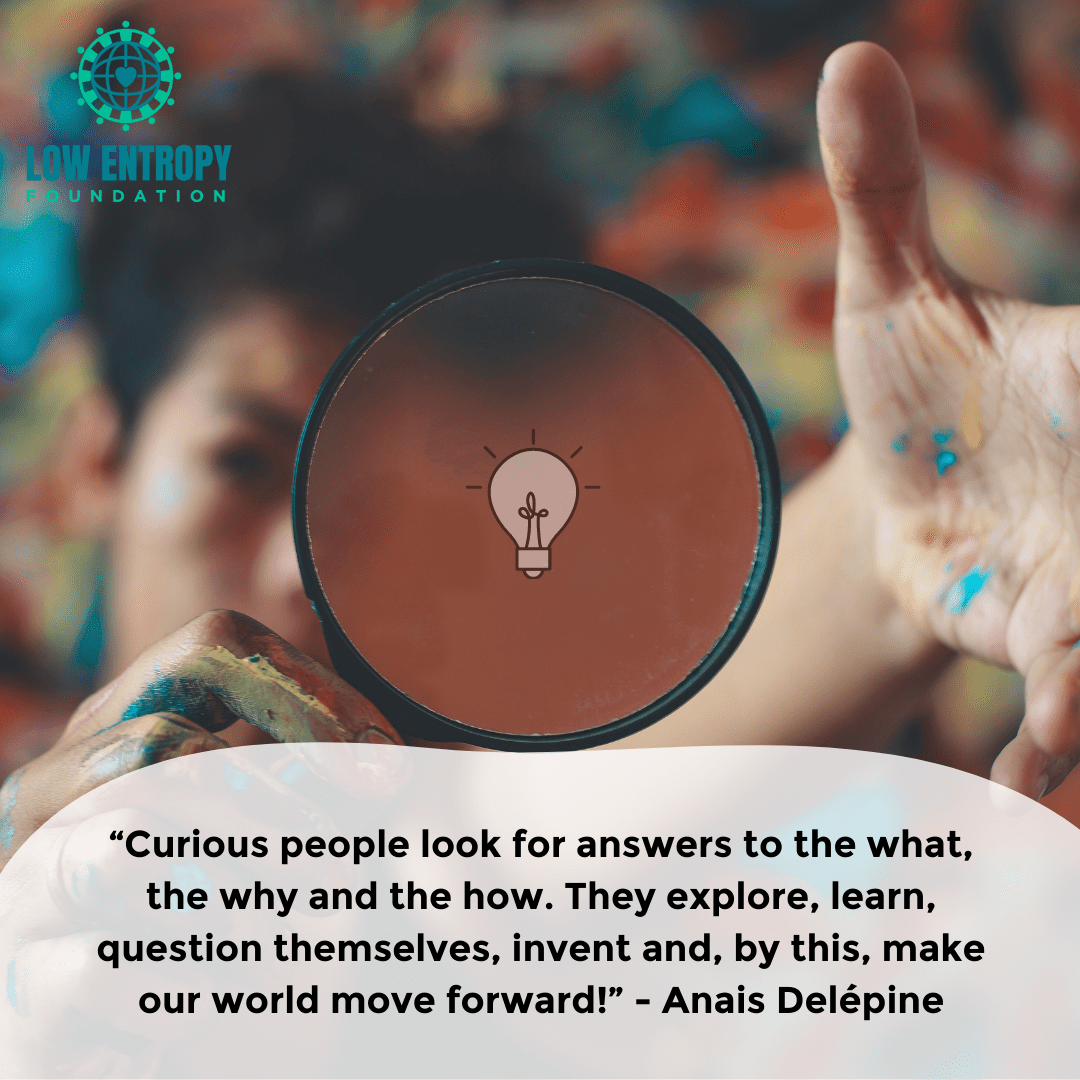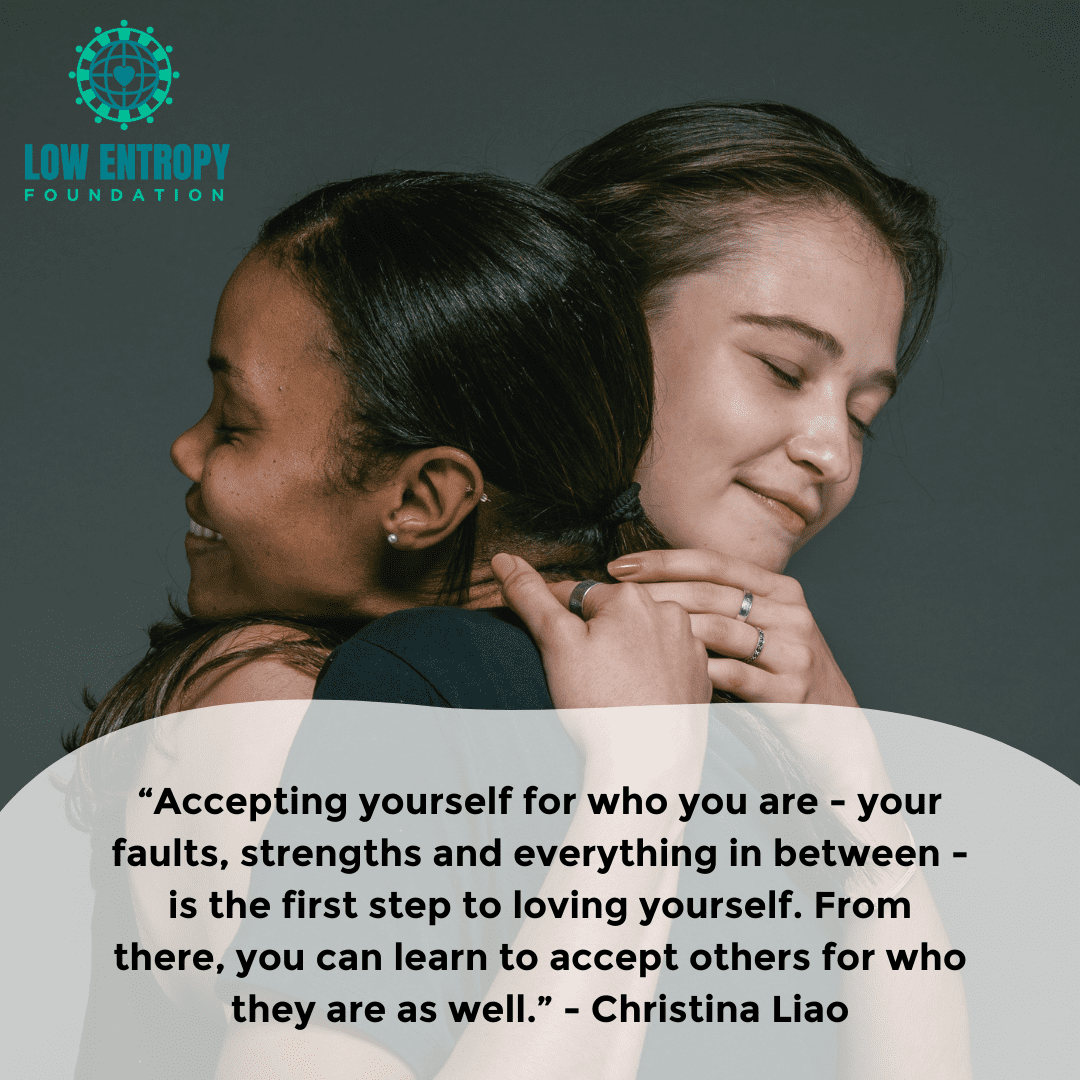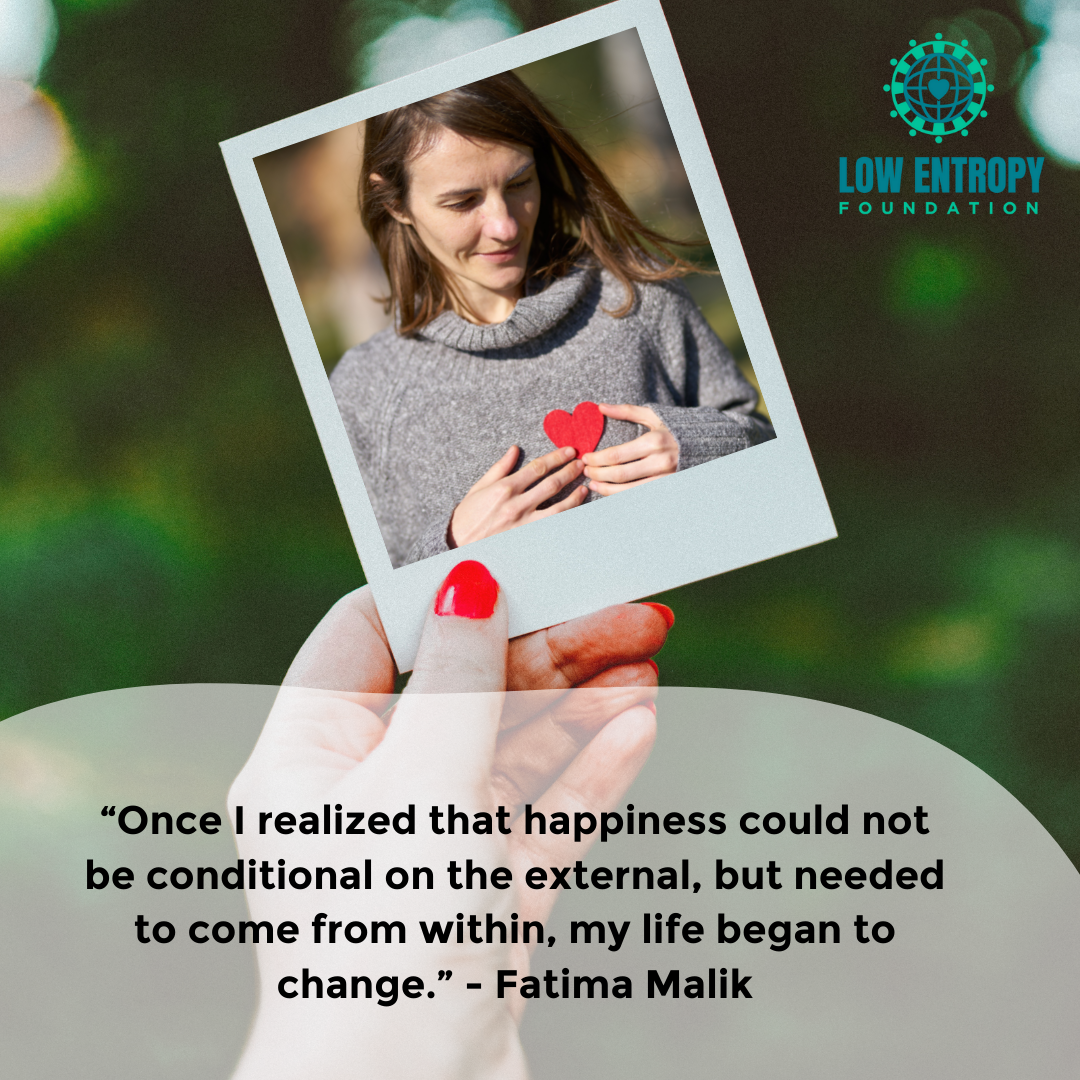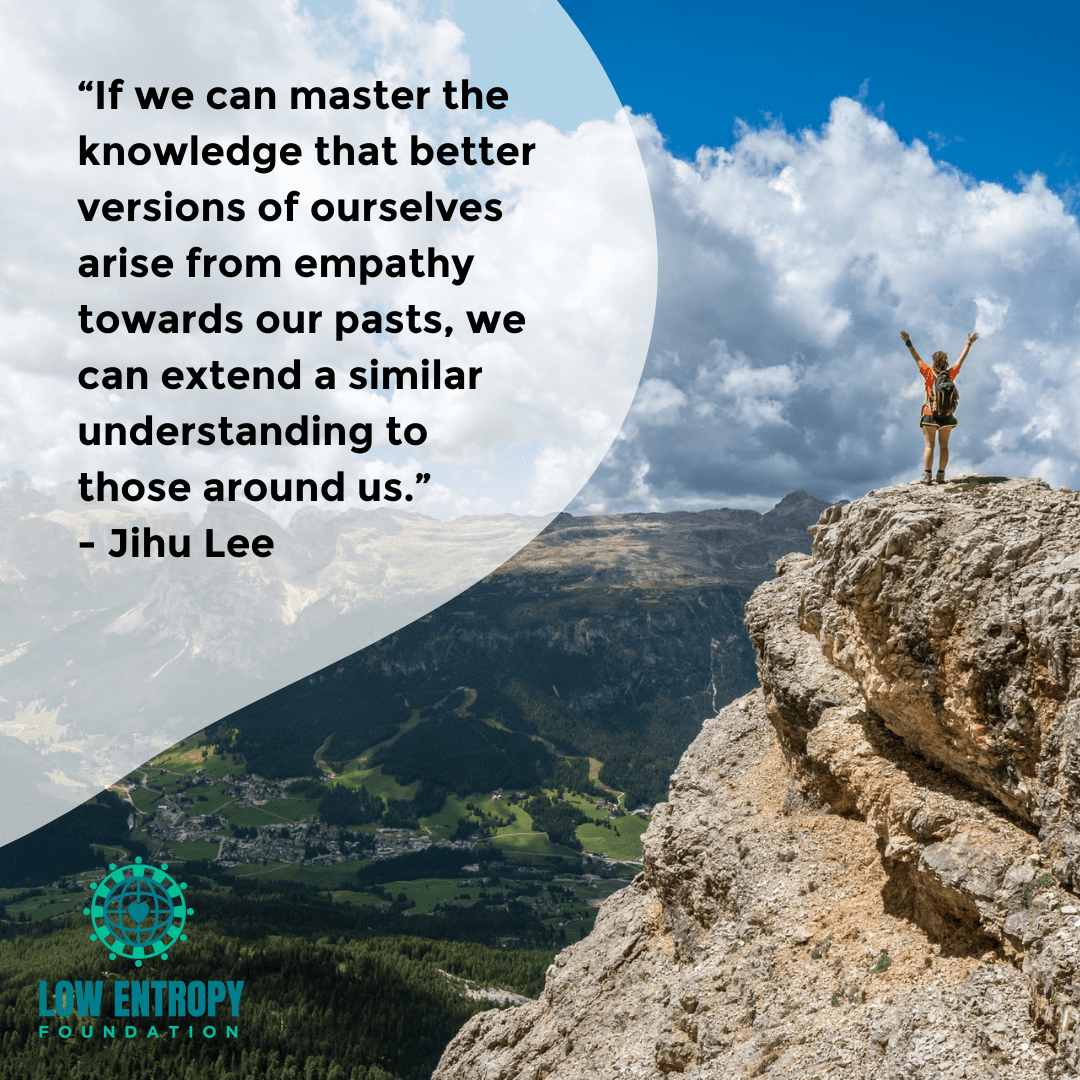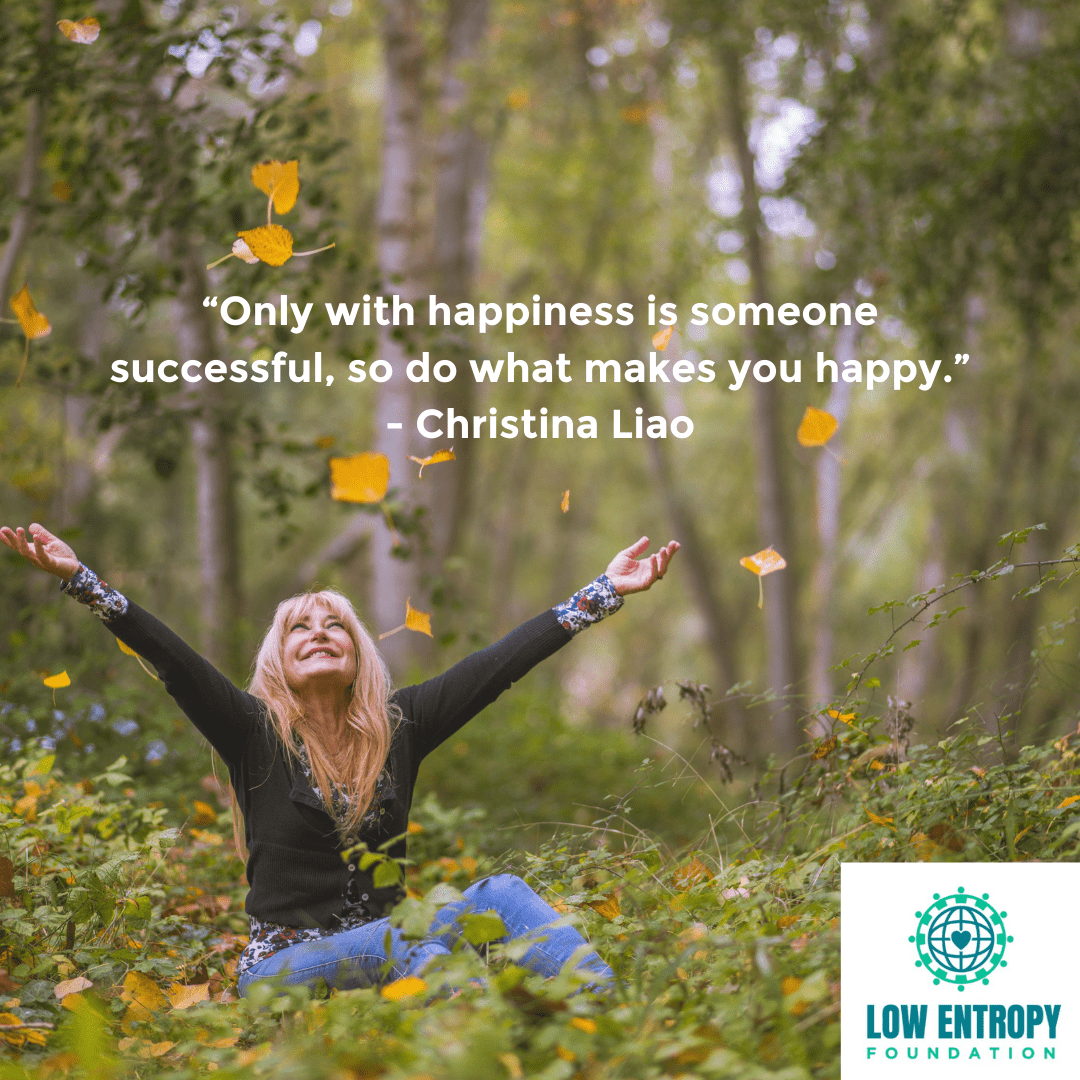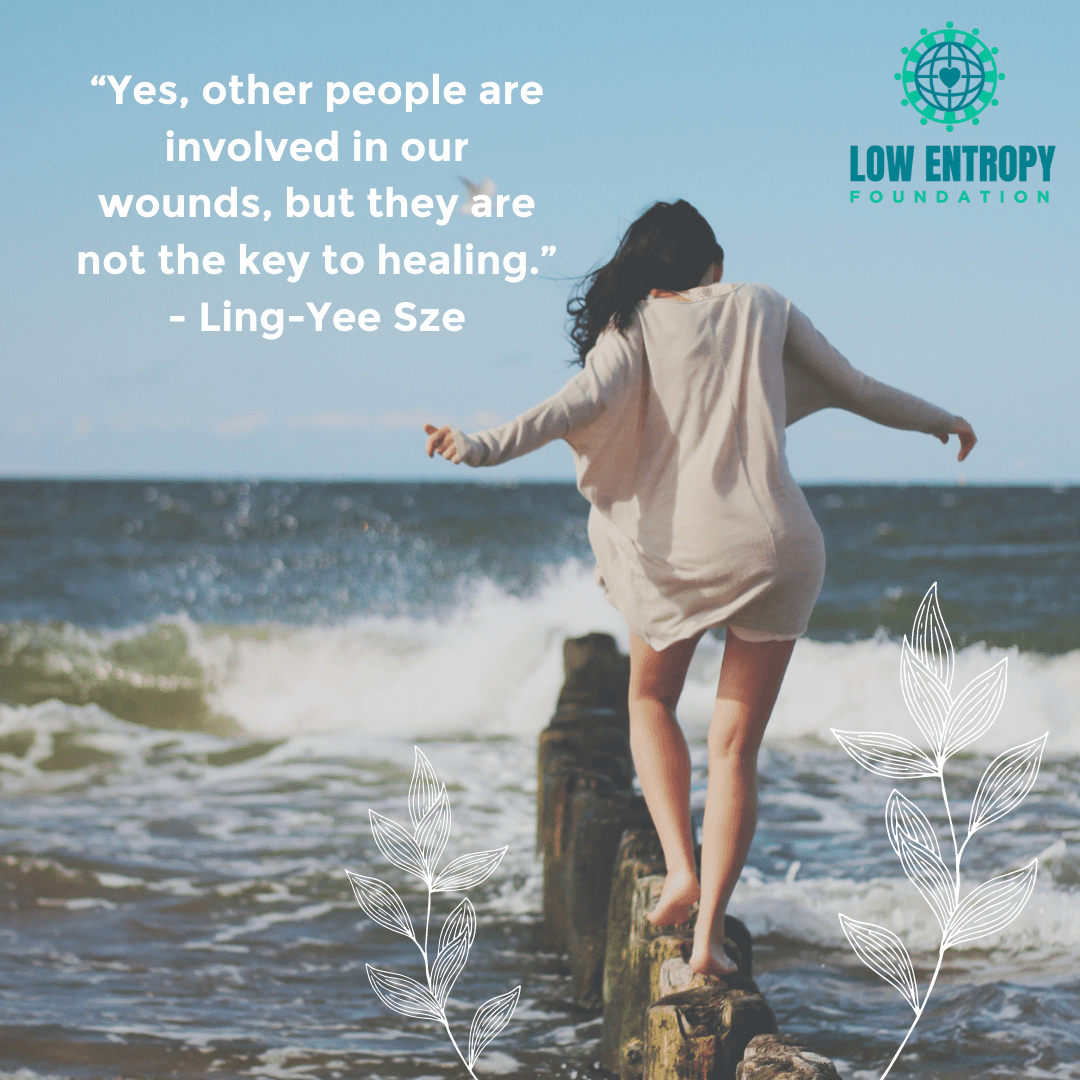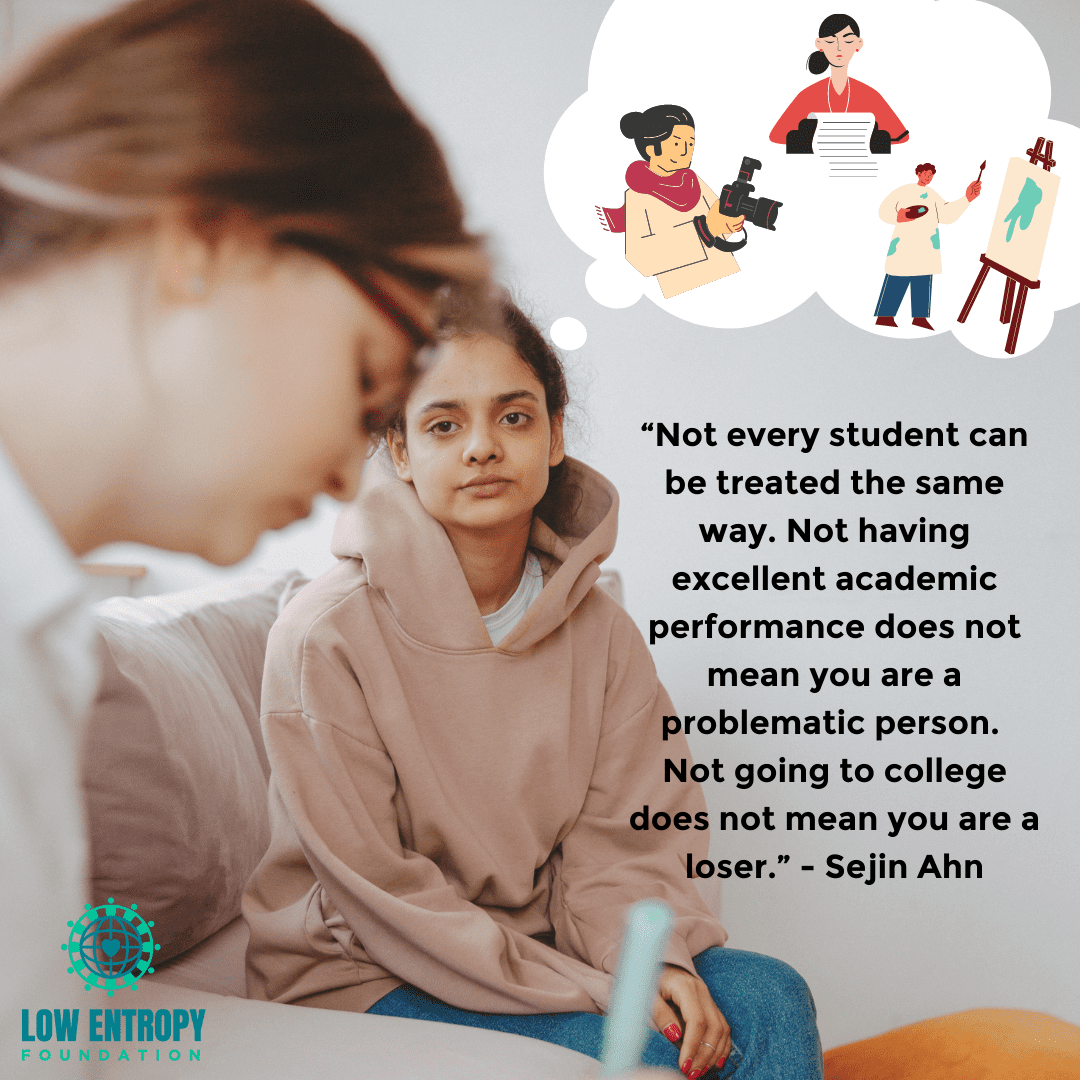Shirin Malek (she/her/hers), Low Entropy Volunteer Writer
In an educational setting it is vital to give children love, positive reinforcement and support in any way that gives them confidence.
I remember when I was seven years old and I told my teacher that I couldn’t do math properly, and that it was really challenging for me. Later the same day she gave me a sparkly pink box and told me to write down all the things I didn’t think I could do.
She said, “I want you to put all of your ‘can’ts’ in this box.”
I did the assignment, but during the entire time I was confused. After class, she took me outside and asked me to bury the box. She looked at me and smiled, and told me that every time I tell myself I can’t do something I should picture that thought in a box in my mind and bury it. Instead of worrying about what I felt I couldn’t do, she wanted me to focus on all of the things I could do and write each of those things down in a notebook. Now, as a twenty-four-year-old, I can look back at that particular moment and see how helpful that lesson was.
A year later, I found out why I felt like I couldn’t do math. I was diagnosed with some learning disabilities. Learning disabilities are neurological disorders which “affect the way a person processes information and thus how they learn information. Simply put, their brains are wired differently.”
Although there are so many individuals in the world who have learning disabilities, the diagnoses seem to cause misconceptions. Rather than focusing on the evidence that learning specialists have gathered, I feel as though there are still some myths that persist. Let’s debunk those, shall we?
1.) If someone has a learning disability, they are unintelligent.
First of all, you are not unintelligent if you have a learning disability. Actually, individuals who have learning disabilities have average or higher intelligence. Having a learning disability does not reflect your level of intelligence. In reality, it only means you learn differently than other people.
If you think about it, it can be beautiful to see how your own brain works and processes things in different ways. You have a new perspective on how you approach different subjects, and finding which learning styles work for you is a key component of the experience.
2.) Someone with a learning disability is lazy, or they can’t learn.
There are so many other talents that someone can possess, especially outside of a classroom. I feel like learning disabilities can be looked at as an excuse for laziness or an unwillingness to learn. Reality couldn’t be farther from that statement. Given the right encouragement and learning skills, a student with a learning disability can thrive and make good progress.
I also think it’s important to get to know what learning style works best for you! When I was in high school, I learned about the VARK model. Essentially, it divides students into four types of learners: visual, auditory, reading/writing and kinesthetic.
1.) Visual
Visual learners prefer to take in information through a visual medium. This could be in charts, graphs or images.
2.) Auditory
Auditory learners learn better from auditory forms. Saying things out loud and being able to hear instructions and information seems to help them organize their thoughts and understand the concepts at hand.
3.) Reading/Writing
By reading and writing, these learners find their learning style through words. Text is powerful and creates a clear picture in their minds of the subject matter at hand.
4.) Kinesthetic
Kinesthetic Learners enjoy a hands-on experience; by touching and engaging their bodies in their work, they are forming a deep connection to the subject matter that they are working with and are learning at a deeper level.
Figuring out your learning style is of utmost importance. Learning new skills like time management, organization and more can only strengthen the educational experience!
Personally, I try to remember what my teacher told me; I put all my can’ts in that pink box, and I try my best to focus on my abilities. Living with learning disabilities doesn’t have to be a hindrance. These experiences can leave students enriched and more in touch with how they learn and how their brains work. With the right tools, encouragement and guidance, a student with learning disabilities will learn in ways that leave them personally and academically as enriched as their other classmates.
Instead of focusing on your disabilities, always remember your abilities. You will surprise yourself with what you are capable of.
Sources Used
https://bau.edu/News/types-of-learning-styles/
https://www.foothillsacademy.org/community-services/parent-education/parent-articles/ld-educators-need-to-know
https://www.helpguide.org/articles/autism-learning-disabilities/learning-disabilities-and-disorders.htm
—
Leave your thoughts for Shirin in the comments below – better yet, start up a dialogue with the Low Entropy community in person, at a Conscious Connections meeting or online at our community site. You can also follow us on Facebook, Instagram, TikTok, Twitter and YouTube to stay up-to-date with Low Entropy news!







